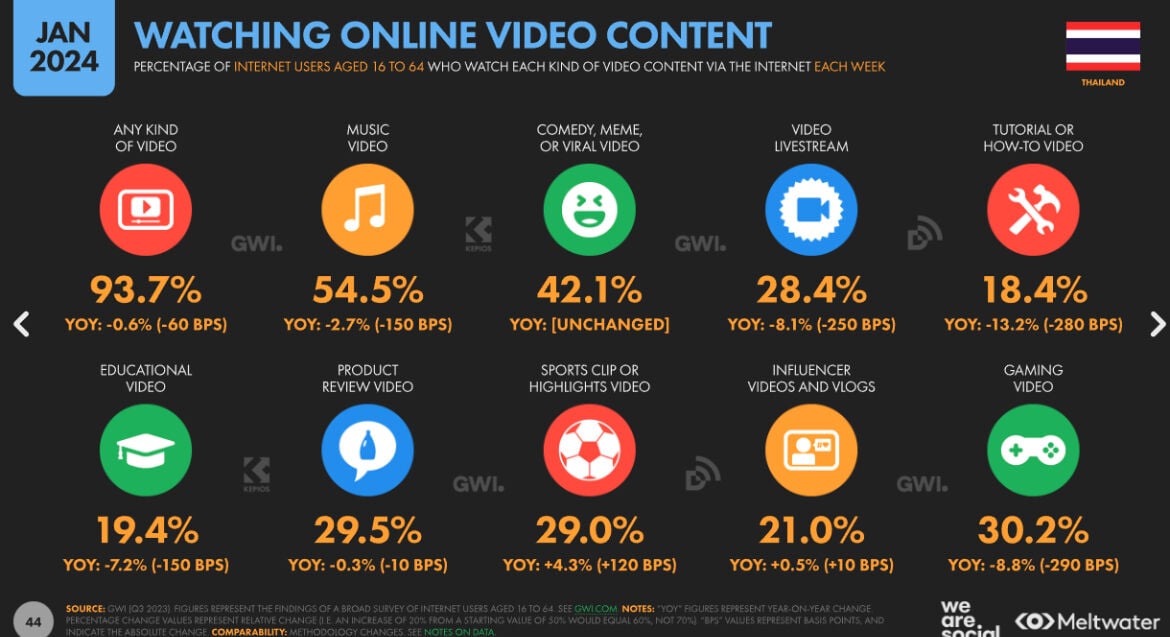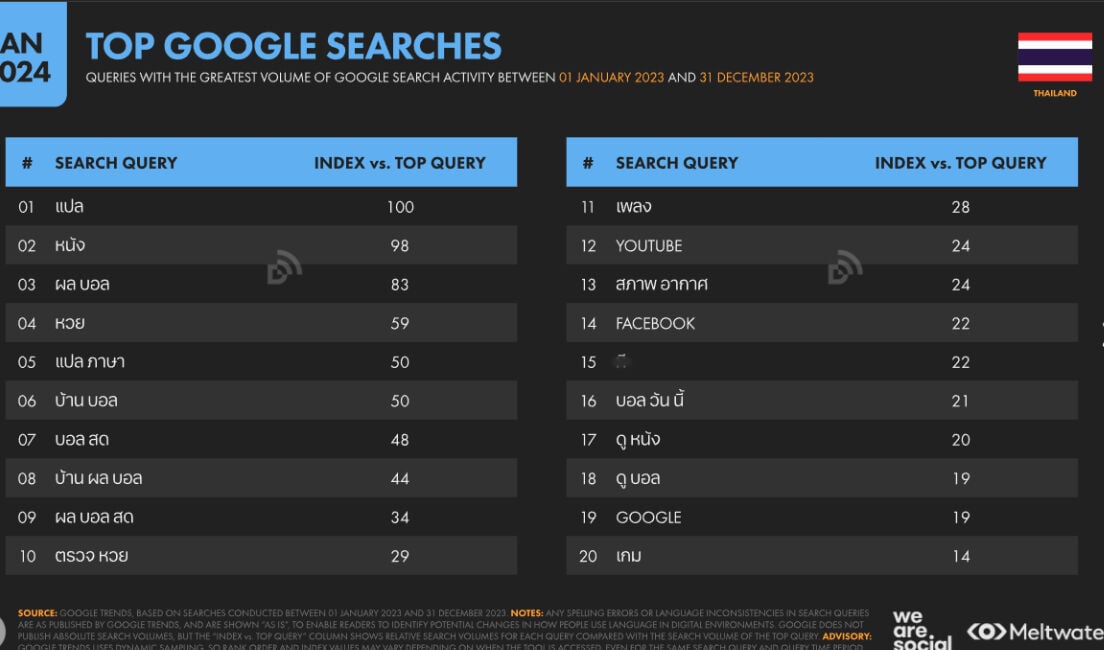Steamy side of Internet in Thailand: Adult sites climb charts

The latest report from We Are Social reveals the top 20 most-visited websites by Thais, showing a notable presence of adult content sites in the rankings.
Despite the wide range of content available online, it appears that websites with adult material continue to garner significant traffic in Thailand. The recent findings by We Are Social, covering the period from December 2022 to November 2023, sparked discussions among netizens and professionals alike, highlighting the enduring popularity of such websites among Thai Internet users.
Renowned IT influencer and presenter Phongsuk Hiranyapruek, better known as “Nui” to his followers, took to his personal Facebook page to comment on the issue. He pointed out that the search for explicit content is not only common but also prominently featured in the country’s top internet search queries.
“This report goes global… ‘Thailand’s Internet Usage Report’ I haven’t read other countries’ reports, but in Thailand, the term ‘X’ is ranked as the 15th top Google search. We have porn sites in the top 10 and two in the top 20… Who isn’t ashamed? I am! Whether you read it to feel embarrassed together or to study behavioural patterns, it’s all worth knowing, folks. We can apply this to our work, understanding these behavioural details.”
Phongsuk’s statement underscores a broader concern regarding the content that dominates online searches in Thailand. His remark, “Who isn’t ashamed? I am!” reflects a sense of personal and perhaps national embarrassment over the prominence of adult content in online searches, suggesting that while the presence of such material is not new, it remains a sensitive topic.
The fact that adult websites rank so highly in Thailand’s Internet searches may indicate underlying societal trends or preferences that could be of interest to marketers, sociologists, and other observers of digital culture. However, the open discussion of these findings also marks a shift from past practices. Phongsuk reminisces about times when such data would be excluded from reports for fear of negative reception, contrasting with the current transparency in revealing the true nature of online search behaviour.

The report’s implications extend beyond mere curiosity, they offer insights into the Thai populace’s Internet use that could inform various professional fields. The data, revealing the types of content that attract significant attention, can serve as a tool for adapting business strategies, understanding market demands, and even informing public policy and internet safety initiatives.
The ongoing dialogue about Internet consumption patterns in Thailand, prompted by the report’s revelations, continues to unfold. As the country grapples with the implications of this data, it becomes evident that the digital landscape in Thailand is as complex and multifaceted as anywhere else in the world.

Latest Thailand News
Follow The Thaiger on Google News:


























